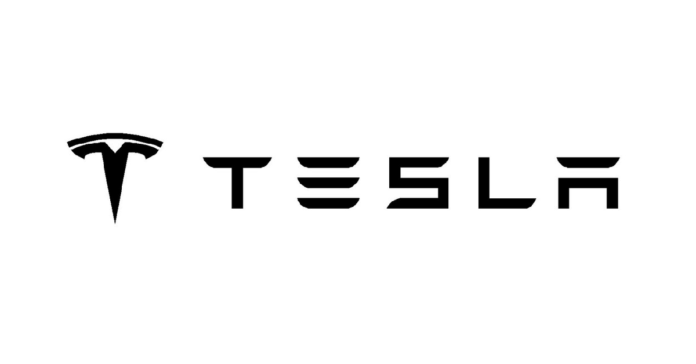AUSTIN, TX – July 6, 2025 – A recent intrinsic value analysis of Tesla, Inc. (TSLA) concludes that the electric vehicle and energy storage giant’s current stock price of $315.35 is significantly overvalued, according to both the Buffett and McGrew valuation methodologies. The comprehensive assessment, which relied exclusively on provided quarterly financial data, suggests caution for value investors despite Tesla’s robust Free Cash Flow (FCF) generation and impressive historical growth.
The analysis, performed using a Master Model Buffett-McGrew Intrinsic Value Calculator for Stocks, classified Tesla as a non-Financial Services company within the Consumer Cyclical sector (Automobiles). This classification dictated the use of Free Cash Flow (FCF) for all valuation calculations. FCF was specifically defined as Net Income minus Derivative Gains/Losses, further reduced by Capital Expenditure.
Detailed Financial Calculations Reveal Key Metrics
For the purpose of calculating FCF, annual data from 2020 to 2024 was extracted and aggregated from quarterly financial statements. Net Income figures were derived from “NetIncomeFromContinuingAnd Discontinued Operation” within the provided financial data. Derivative Gains/Losses were assumed to be zero due to a lack of explicit reporting in the provided data, a limitation noted in the analysis. Capital Expenditure data was sourced from “Capital Expenditure” in the cash flow statements.
The annual FCF calculations (in thousands) were as follows:
- 2024 (TTM): $16,206,000
- 2023: $24,898,000
- 2022: $19,755,000
- 2021: $13,533,000
- 2020: $3,901,000
It was noted that these calculated FCF figures differed from the “FreeCashFlow” field in the Yahoo Finance provided cash flow statement, a discrepancy attributed to other adjustments (e.g., changes in working capital) present in the reported figure. The analysis strictly adhered to the model’s FCF definition for consistency.
Shares outstanding were determined to be 3,220,000,000 shares based on the most recent Q1 2025 data from the balance sheet. Net Debt, calculated as Total Debt minus Cash and Cash Equivalents , resulted in a negative value , which, per the model’s instructions for non-Financial Services companies, was adjusted to $0.
A crucial input for the McGrew Valuation Method was the 3-5 year FCF Compound Annual Growth Rate (CAGR). Calculated over five years (2020-2024) , the FCF CAGR was approximately 32.97%. This significant growth rate classified Tesla as a “growth stock” for the McGrew method, although the model imposed a cap of 15% on the initial growth rate for valuation purposes.
Buffett Valuation Method: A Conservative Outlook
Under the Buffett Valuation Method, which employs a more conservative approach, the intrinsic value per share was calculated to be $91.35. This method utilized a starting FCF of $16,206,000,000 (2024 FCF) , a constant growth rate of 3% for the first ten years , a perpetual growth rate of 2.5% , and a discount rate of 8%.
The projected FCFs for the next ten years were discounted back to present value, along with a terminal value calculated at Year 10. The sum of these present values yielded an Enterprise Value of $294,149,946,338. With an adjusted net debt of $0 , the Equity Value remained the same, leading to the intrinsic value per share of $91.35. Applying a 25% margin of safety, the price for a conservative investment stood at approximately $68.51.
McGrew Valuation Method: Accounting for Growth, with Caveats
The McGrew Valuation Method, designed for growth stocks, yielded a higher intrinsic value per share of $155.19. This method also began with the 2024 FCF of $16,206,000,000. The FCF CAGR of 32.97% was capped at 15% for the first year, then declined linearly to 6% by Year 7, remaining at 6% through Year 10. A perpetual growth rate of 2.5% and a discount rate of 8% were also applied.
Similar to the Buffett method, the projected FCFs and the terminal value were discounted to arrive at an Enterprise Value of $499,697,328,500. With zero adjusted net debt , the Equity Value matched the Enterprise Value, resulting in an intrinsic value per share of $155.19. The price with a 25% margin of safety for the McGrew method was approximately $116.39.
Valuation Status: Overvalued Across the Board
Comparing the last closing price of $315.35 to the calculated intrinsic values, both methods categorize Tesla as “Overvalued”.
- For the Buffett Valuation, the closing price ($315.35) was approximately 245.27% above the intrinsic value of $91.35 , well beyond the “Overvalued” threshold of greater than 36% above intrinsic value.
- Under the McGrew Valuation, the closing price ($315.35) was approximately 103.26% above the intrinsic value of $155.19 , also indicating a significantly overvalued status (>36% above).
Elon Musk’s Latest Distraction: A New Political Party?
Adding another layer of complexity to Tesla’s public perception and potential investor sentiment is recent news regarding CEO Elon Musk’s purported efforts to form a new political party. While details remain scarce, reports suggest Musk is exploring the creation of a political entity aimed at disrupting traditional two-party dynamics and promoting his vision for technological advancement and societal change. Such a venture, if it materializes, could divert significant attention and resources from his core business responsibilities at Tesla and other ventures, potentially introducing new levels of unpredictability for shareholders. Historically, Musk’s various endeavors and pronouncements, while often driving innovation, have also at times been perceived as distractions by some investors.
Loss of EV Tax Incentives in the USA: A Headwind for Tesla
Furthermore, the landscape for electric vehicle adoption in the United States is undergoing a significant shift with the likely phasing out or reduction of federal tax incentives for EV purchases. These incentives have historically played a crucial role in making electric vehicles more financially accessible to a broader consumer base, thereby boosting sales for manufacturers like Tesla. The direct effect of losing these incentives is expected to be an increase in the effective purchase price of EVs for consumers, potentially slowing down the rate of adoption and impacting demand. For Tesla, which has long benefited from its pioneering role and strong brand loyalty, this change could necessitate strategic adjustments in pricing, production, or the exploration of new market segments to maintain its sales momentum and market share in the U.S.
Limitations and Concluding Thoughts
The analysis acknowledges several limitations, including the assumption of zero derivative gains/losses due to a lack of explicit data, which could affect FCF accuracy if Tesla engages in significant derivative activities. The use of TTM data for 2024 as a proxy may not fully represent the calendar year. Additionally, the model’s conservative capping of Tesla’s high FCF CAGR at 15% for the McGrew method may undervalue the company’s true growth potential.
Despite these limitations, the consistent “Overvalued” status derived from both the Buffett and McGrew valuation methods , coupled with the current market dynamics and potential external factors like Elon Musk’s political pursuits and the evolving landscape of EV incentives, strongly suggests that Tesla’s current stock price is trading at a significant premium to its calculated intrinsic value. Value investors are advised to exercise caution.

